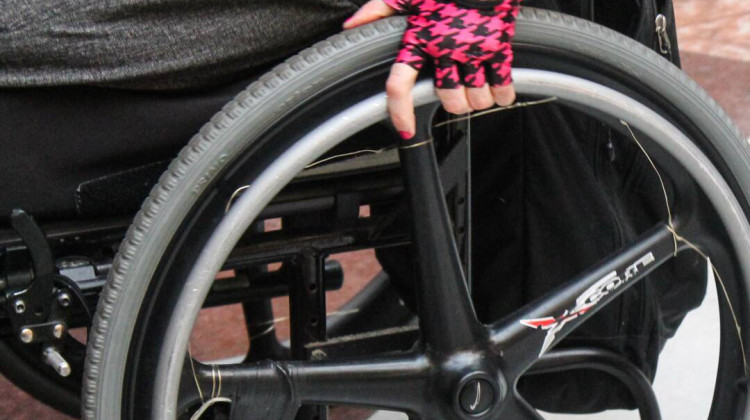
A figure showing Indiana's abortion rate compared with the United States and the Midwest
Dr. Heidi Moseson, Senior Research Scientist at Ibis Reproductive HealthResearchers are releasing the preliminary results of a study into abortion access in Indiana early, citing the expected passage of abortion restrictions through the state legislature next month.
The study includes both survey results and interviews with some 500 people across the state who either sought or provided abortion care.
Dr. Tracey Wilkinson is an assistant professor of pediatrics at the IU School of Medicine and one of the co-investigators on the study. She said the report shows that between June 2021 and May 2022, many Hoosiers were already struggling to access abortions.
“What we heard and what we saw in the study are the incredible barriers that had to be overcome to access abortion,” she said. “People were saying the cost was making them have to choose between feeding their family, paying bills, or rent.”
On average, Hoosiers in the survey paid over $500 in order to get an abortion. That cost drove at least 10 percent to self-manage their abortions.
About one in four people who got an abortion already traveled outside of Indiana to receive care. Those who did so primarily went to Illinois (70 percent) but also journeyed to Kentucky and Ohio.
The study also outlines the additional cost of traveling out of state. Participants paid, on average, an additional $270 for things like childcare, gas, and accommodations.
Other findings include who in Indiana seeks abortion care. According to the study, 43 percent were white, 35 percent were Black, and 11 percent were Hispanic.
“Over half of the people that are accessing abortion identified as Christian or Catholic,” Wilkinson said. “Over half of the people accessing abortion are already parents. What we’re seeing is not the stigmatized version of who is accessing abortion, but the everyday Hoosier.”
Outside of her work on the study, Wilkinson said she worries about the big picture chilling effect a state ban on abortion could have on care, especially for people accessing abortion-adjacent care that lawmakers aren’t thinking about.
“The problem is there are very few things in medicine that are black and white,” she said. “It’s really hard to write a law that applies to everything. There are no two patients that are the same. That’s why we should not be legislating medicine.”
Wilkinson said she also worries abortion bans might trigger a brain drain in Indiana as healthcare workers decide to leave for states that won’t penalize abortion care, and residents choose to study in states that won’t put limits on their training.
“There are huge repercussions to this moment that I don’t know if all the people at the table think about because they are so focused on this one thing,” she said.
“I know that a few years down the road they’ll be like ‘we didn’t know that was going to happen,’” Wilkinson said. “I just want to have in print that I said it… we said that women were going to die, that people weren’t going to come here to train. We said it and you didn’t listen.”
9(MDAyMzk1MzA4MDE2MjY3OTY1MjM5ZDJjYQ000))
 DONATE
DONATE








 Support WFYI. We can't do it without you.
Support WFYI. We can't do it without you.